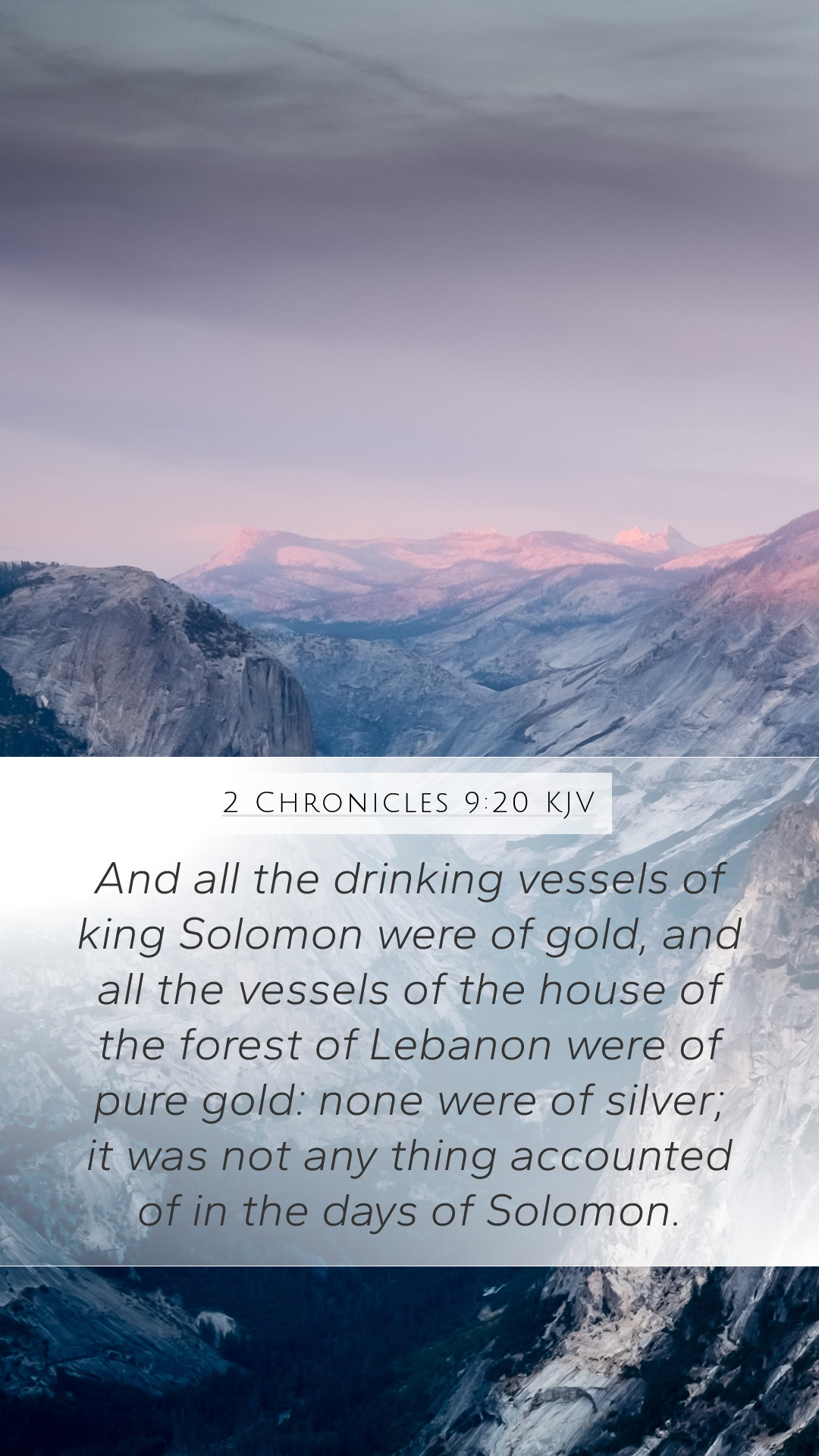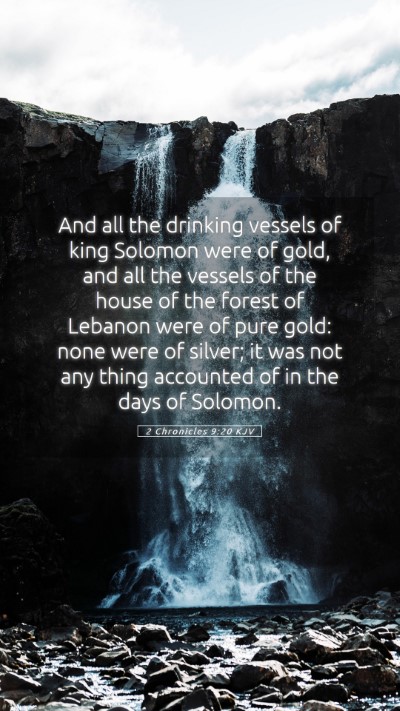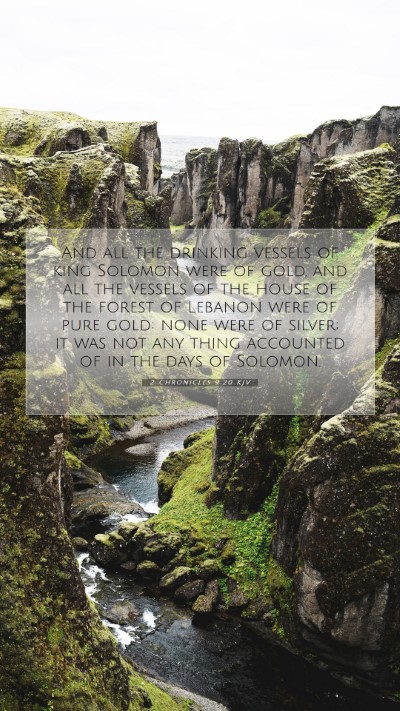Understanding 2 Chronicles 9:20
“And all the drinking vessels of king Solomon were of gold, and all the vessels of the house of the forest of Lebanon were of pure gold; none were of silver; it was not any thing accounted of in the days of Solomon.”
Bible Verse Commentary
2 Chronicles 9:20 serves as a remarkable testament to the wealth and splendor of Solomon's reign. In this verse, we witness a sharp contrast between the abundance of gold and the insignificant value placed on silver during Solomon’s time. Below, we outline insights from various public domain commentaries regarding this passage.
Matthew Henry's Commentary
Matthew Henry emphasizes the extraordinary riches and the unparalleled opulence of King Solomon. He notes that all drinking vessels being made of gold speaks to the nature of Solomon’s reign—his wisdom manifested not only in governance but also in the profound wealth that he attracted. Henry adds that silver had become so common that it was not esteemed at all. This indicates a period of both peace and prosperity, marking Solomon’s exceptional status as a ruler.
Albert Barnes' Notes on the Bible
Albert Barnes highlights that this verse places Solomon's wealth in the context of his divine blessing. Barnes points out that gold represents purity and value, whereas the disregard for silver illustrates a time when wealth was abundant. This abundance is linked to the favor of God upon Solomon as he was the one chosen for such glory, contrasting with the earlier narrative of Israel's struggles before his reign.
Adam Clarke's Commentary
Adam Clarke draws attention to the expansive nature of Solomon’s domain and the riches associated with it. He explains that the statement regarding silver not being accounted for suggests a shift in economic status, where gold became the standard of wealth and luxury. Clarke further elaborates on the significance of the “forest of Lebanon”—a symbol of the grandeur of nature supporting Solomon's architectural endeavors, indicating that his wealth was not just material but also environmental.
Significance and Application
Understanding 2 Chronicles 9:20 goes beyond mere historical context; it serves as a reminder of the blessings that can come from righteousness and wisdom in leadership. The opulence of Solomon's reign can inspire us to appreciate the gifts we receive and use them wisely in our lives today.
Historical Context
The context of this verse lies in the broader narrative of Israel's monarchy, especially during Solomon's rule, which is often referenced in subjects of Bible study insights and Bible verse interpretations. Solomon's wisdom, coupled with his God-given wealth, positioned Israel as a prominent nation in the ancient Near East. This greatness is pivotal in understanding the characteristics of God’s favor.
Additional Insights
- The richness of Solomon's court serves as a parallel to the lavishness described in the Book of Revelation.
- The gold vessels symbolize a deeper spiritual richness, reflecting the idea that true wealth comes from God.
- This passage encourages believers to reflect on the use of their own resources in light of God's provision.
Related Bible Cross References
- 1 Kings 10:21: More on the wealth and magnificence during Solomon’s reign.
- Job 22:24: Discusses the value of gold and the pursuit of righteousness.
- Matthew 6:19-21: A lesson on storing treasures in heaven versus earthly riches.
Concluding Thoughts
In conclusion, 2 Chronicles 9:20 presents a vivid picture of Solomon's wealth, illustrating God’s blessings accompanying those who lead with wisdom and righteousness. This verse, rich in meaning, invites us into a deeper Bible study experience where we can ponder the implications of wealth and the significance of divine favor in our own lives. As we engage with the meaning of Bible verses, may we always seek to apply these truths to our daily experiences.


